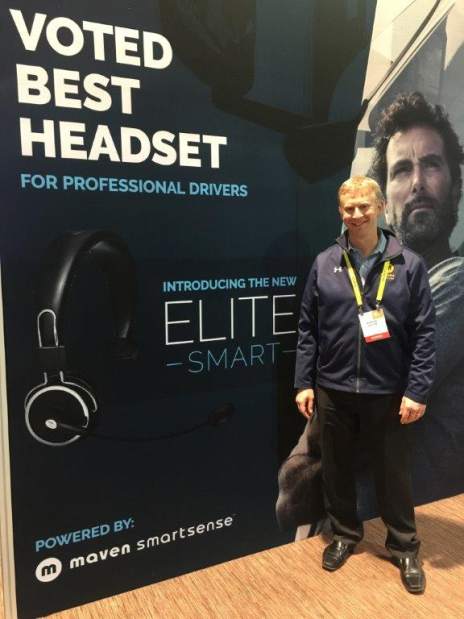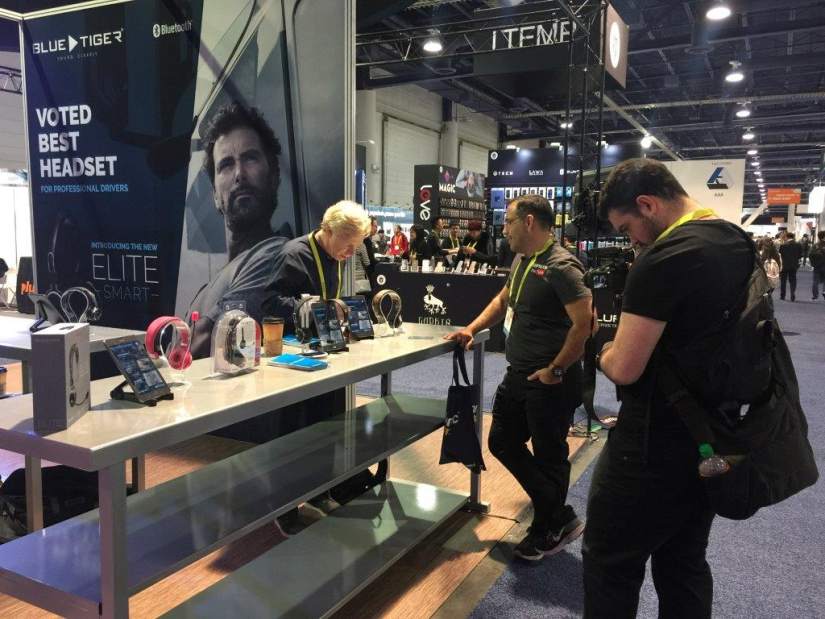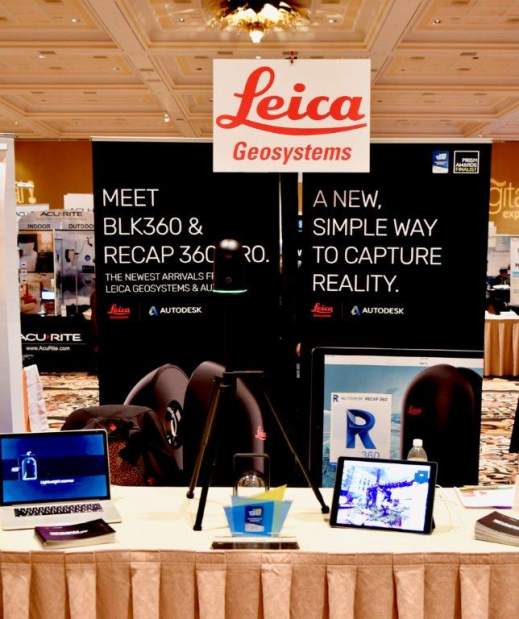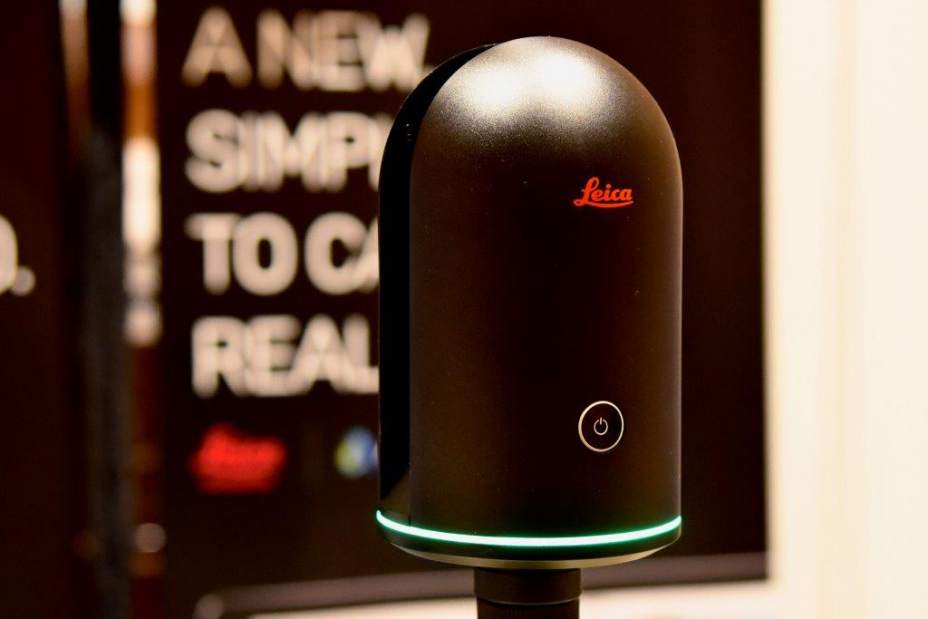Pittsburgh firms leaving impression at consumer electronics show
Despite being 2,200 miles from the Las Vegas Convention Center, Pittsburgh is making its presence felt at the Mecca for gadgets, gizmos and all-around technology greatness.
Several technologies developed in Pittsburgh are on display at CES, which features more than 4,200 companies showing off the latest technology offerings inside the Las Vegas Convention Center. The convention runs through Sunday.
The Tribune-Review examines a few of the Pittsburgh-based technologies making waves this year.
Maven Machines
Avishai Geller got the call about a month ago.
Blue Tiger, a leading manufacturer of Bluetooth headsets for professional truck drivers, wanted to make the technology from his company, Maven Machines, the focus of its 8,000-square-foot booth at CES.
"Really last minute for such a large show, but this is a great opportunity," Geller said of Blue Tiger's offer.
Maven & Blue Tiger team up for the worlds largest booth dedicated to Smart Hearables at CES #hearables pic.twitter.com/uPULuvWQZo
" Maven Machines (@MavenMachines) January 4, 2017
Geller and Maven Machines make software and sensors for headsets worn by truckers to monitor how often they check their mirrors — federal guidelines suggest trucker check their mirrors every five to eight seconds, Geller said — or if their head is bobbing from fatigue. The headset monitors speed, breaking and other data that help keep drivers safe and make shipping more efficient.
The U.S. Department of Transportation-approved, hands-free headset has about a dozen sensors and takes 50 readings per second. It loads that information into a mobile app and shares it with trucking companies monitoring their fleets.
"It's kind of like a Fitbit for drivers," Geller said Wednesday night as he prepared to catch a 5 a.m. flight to Las Vegas.
Geller, a Massachusetts Institute of Technology graduate, started Maven Machines two years ago. He came to Pittsburgh in 2014 to take part in AlphaLab Gear, a 40-week tech incubator for hardware startups. The program helped him get Maven Machines off the ground, and Geller stayed in Pittsburgh.
Maven Machines now has an office Bloomfield, employs about a dozen employees and will be hiring more.
Blue Tiger is putting the technology Geller and Maven Machines developed into its Elite Smart line of headsets and has dedicated its entire booth to the product.
"Always, the vision has been that as the technology matures, we would make it available to consumers," Geller said. "I just didn't think it would happen this fast."
More than a dozen freight companies, including FedEx, Central Freight, Modern Transport and Old Dominion, use Geller's technology. He said the partnership with Blue Tiger makes it available to drivers not working for a major fleet. Geller said he hopes it eventually finds its way into all vehicles.
"This is now ready for the consumer," Geller said.
Blue Tiger hasn't announced a price for the headset. Geller said cost depends on the level of service and includes a monthly fee.
Autodesk
The BLK360 is about the size of a coffee cup, but the 3-D camera is getting a lot of attention at CES.
It combines the camera expertise of Leica with state-of-the-art 3-D imaging software from Autodesk's office in East Liberty.
It was named a CES 2017 Innovation Awards honoree, and Aaron Morris, senior manager of Autodesk's Reality Solutions, isn't shy about its potential in the world of high-priced 3-D scanners.
"For the industry of 3-D scanning, it's a bit of disrupter," Morris said. "It's easier to use. It's lower cost. It's much more portable."
Traditional 3-D scanners, which can take a three-dimensional, 360-degree image that contractors and others can use to take measurements and create models, cost between $30,000 and $50,000 and are cumbersome to use, Morris said. The BLK360 will sell for about $15,000 to $16,000, has a single button and pairs with an app designed for the iPad Pro.
Morris, a graduate of Carnegie Mellon University's Robotics Institute, designed the backbone of the software with a company he founded in Pittsburgh, Allpoint Systems. Autodesk acquired Morris' company at the end of 2012, and he began work on the digital imaging software ReCap 360. The BLK360 runs an updated version of ReCap 360.
The 3-D image streams live to the app, allowing people to mark, annotate and take measurements on site, Morris said. Few scanners integrate with a mobile application.
And it's accurate within millimeters. Morris said the price point could put the scanners — through a rental — in use for even household remodeling projects.
Leica Geosystems, the company manufacturing the BLK360, said the product will be ready to ship in March.
Delphi
This year's CES could be confused with a car show — autonomous vehicles seem to be everywhere.
Auto-supplier Delphi's offering, a self-driving Audi SUV, was tested on Pittsburgh's streets and contains technology from Ottomatika, a CMU spinoff company Delphi acquired in 2015.
Delphi announced its autonomous systems will be available to automakers by 2019.
Delphi didn't respond to requests for comments about its self-driving testing in Pittsburgh before CES. Videos on the company's website show an Audi SUV driving on the city's roads and through tunnels.
Reports from the show indicate the car made successful, stress-free laps around a 6.3-mile course. The company tweeted that it was "conducting the most complex, real-world #selfdriving demo," as the show opened.
Raj Rajkumar, head of CMU's autonomous vehicle program and founder of Ottomatika, said it is gratifying to see his work on display at CES.
"This year, they are taking it one step further," Rajkumar said, noting he hasn't had much involvement in the development since selling the company to Delphi.
Rajkumar is attending CES again this year. The show, in its 50th year, started with televisions, radios and phonographs. Now, more than a third of it is cars, Rajkumar said.
"Cars are basically computers on wheels," he said.
Aaron Aupperlee is a Tribune-Review staff writer. Reach Aupperlee at aaupperlee@tribweb.com or 412-336-8448.





